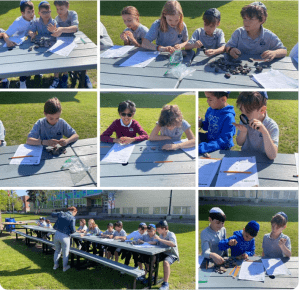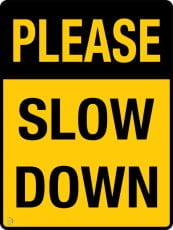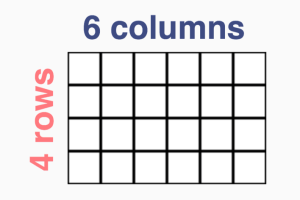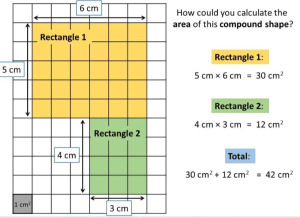Grade 4 Newsletter
Final updates for Grade 4
DRUMROLL PLEASE
First place 4A: Oren with a speech on Infinity
First place 4B – (Tied!) Livia with a speech on Helping the Poor and Ari with a Speech on Why Kids should have TVs in their rooms.
Second place 4A: Noa with a speech on The importance of Mental Health
Second place 4B: Orly with a speech on The History of the English Language
Third place 4A: Jonah with a Speech on Who I am
Third 4B: Jack with a speech on Inflation
Congratulations to all grade 4 students for taking part in this important event and developing their speaking skills!!!
Ms.M as a minion…because why shouldn’t the end of the year include some silliness!
Final workshop with Josh Max about safety around safe extensions on your computer:
Grade 4 – Self directed study
As the Grade 4 year begins to ebb closer to summer this means Grade 5 is looming… I begin to introduce skill sets that will prepare or at least give insight into what Grade 5 could look like. Self-directed study is one of those areas. I deliberately choose a topic that has high student engagement and a topic that they all have studied before (setting them up for success by building upon prior knowledge).
A study from Waterloo University states “Learning independently can be challenging, even for the brightest and most motivated students” and for the years in which I have completed Self-directed study units, I see this every single time. Despite this, I have never had one student give up. What I do see is an increase in student collaboration, thought partners to problem solve, and a quiet buzz (this year not so quiet!) of curiosity. It is a point in the year when I sit back and observe the students and how far they have come. This is not a task that one simply ‘does on a random day that nothing is planned’, there is a build-up of trust between students and teachers. In fact, the lessons that look like they have the least amount of structure, have the most amount of background structure (See John Spencer’s – awesome ‘out of the box’ educator’) .
The self-directed study needs four key stages:
-being ready to learn,
-setting learning goals,
-engaging in the learning process,
-evaluating learning.
As per my personal growth project this year, I have been working on (re) introducing Language Arts into Makerspace and building assessment tools that include 21st-century skill development and evaluation. Here is one of the tools that I am currently using, it is taken from the Bank of Resources at the University of Waterloo.
Let me show you the start of how we are moving through this exciting unit this term. Here are the first two stages as planned by a Grade 4 Student – Being Ready to learn and Setting Learning Goals:
Engaging in the Learning Process:
Students completed research and extended their learning beyond the classroom by bringing their own rock collections:
Students working on their projects:
Here we are taking our learning outdoors:

The final stage is evaluating learning so check out the individual student blogs to see what we produce… Students will produce their own assessment tool. Here is a John Spencer thought video about students owning their own assessments.
speed ≠ better

If you’re a parent reading this blog as a child of the 90’s, 80’s or…. (I’ll let you fill that in) you may have memories of math class past which could have included the game “Around the World.” For those of you born later, or in need of a recap, this game was basic in nature, and although exciting and captivating for some, was and could continue to be furious and unengaging for others.
Let’s review.
Imagine going through the class with multiplication flash cards. Desk by desk. The first student to say the correct answer “wins” and then goes to the next desk. Those next two students battle to beat the clock to say the correct answer, the “winner” goes to the next desk, and so on, and so one, until all students have battled around the classroom.
Now for those of you with memories of this; I bet you can instantly think of, or remember the feeling or ongoing undisputed champ of this game. This is because it usually was/is the same student or possible small group of same students. Some students may see this as a challenge to better their speed in their skills, however the unglorified truth is that this game and “need for speed” actually inhibits others from learning. So only the “fastest” can win.
So those students who may be more diligent thinkers, divergent thinkers, or those who look and understand the “why” something works, never have a chance. If one student is known as the “fastest”, unless I have a personal incentive to put effort to know my facts “faster”, this game is just no interest to me, and I’m find with this student being the fastest…and let alone could be embarrassed when it becomes my turn to battle.
So why would students engage? Why would they even participate? Why would they even bother?
What this teaches students is that “fast math” is better…however, truth is…it’s not!
Knowing math facts confidently is one thing, knowing how and why they work, is better.
This post is all about the importance of deemphasizing the speed in mathematics classrooms.
A few weeks back, I posted information and thoughts around multiplication and the ongoing challenge to find balance between memorization and fluency understanding. As we move through the grade four math curriculum, there are multiple examples that support fluency over facts. However, as mentioned before in my previous post, knowing your multiplication and addition/subtraction facts, or at least most of them, can be helpful and support effective math practices in other strands and areas.
Our current strand combines both measurement and geometry, and with a focus on perimeter, area, and metric conversions. This unit has not only amplified the benefits of being confident with multiplication facts (A = l x w), but also how understanding how multiplication works, ie. multiplication = area.
In the below example, you can see that the multiplication array is 4 x6. You can also see that the Area of this rectangle can be calculated by finding how many square units can fit inside, through the multiplication of the row measurement (length) by the column measurements (width) thus creating a formula A = l x w.

So continuing in terms of area…it’s like going from the above visual to this one below:

So with that glimpse of how fluency is and still can be meaningful within math class, there are examples everyday where we see a shift between students and young adults not being able to “figure out” certain problems, and why finding a balance between placing importance on both facts and fluency is important.
Let’s take a trip to the grocery story. In a highly automated world, no math calculations are required…yet..what happens when there’s a break in the system, computer glitches, or something breaks. Everything breaks down. I have one story where I went shopping for some simple groceries and I had to help the cashier make the change for me, as the computer program wasn’t working that automatically distributed change. What an eye opening experience.
Or how about when we’re out eating at a restaurant. How often have you checked the tip percentage calculations on the machine and have realized that they are actually incorrect.
It’s incredibly important, not just here at the OJCS, where we pride ourselves in working toward more personalized learning, but also in a world where teaching to the whole child and developing positive Social Emotional Learning (SEL) (link to my 3 part series on this here) for mathematics is integral that we begin to de-emphasize the speed in which how math is calculated and focus more on the ideas and methods to why.
Process OVER Product!
This not only provides space and opportunity for an equal learning environment, but also allows all students possibilities to be “math champs” in the classroom.
Right now, in grade four, as we roll out of geometry (ha!) and break into fractions, this again will be evident as we compare and contrast fraction equalities and inequalities, as well as ongoing further problem solving and investigative measures through problem based learning and with a more in depth focus on why, rather than just what.
Mathletes come in all speeds, and by flipping the math paradigm of “math games”; it actually can be the more slower thinkers that win the race!
Ms. M’s social studies class had an unexpected visitor!
We had an unexpected teacher in our Social Studies classes this week… Mr Z! Mr. Z had recently vacationed to Costa Rica and took his learning outside of the classroom! We have been studying early civilizations in Social Studies and one area in particular stuck with Mr.Z… the creation and development of chocolate! Although, Costa Rica did not have a thriving indigenous culture such as the empires of the Mayan, Aztec or Inca people. The native people were culturally influenced by Mesoamerican peoples from Central America and cultures from northern South America which is why many will find Mayan, Aztec or Inca links when visiting that area.
Mr Z brought Cacao beans to show the class and explained the process of indigenous methods of making chocolate! Here he is in action:
Thanks Mr Z! We all look forward to what you will bring into class next time!! Keep exploring and keep being curious!
Weekly updates
Upcoming events
– Grade 4/5 night out (please see below)! Please see the email or blog post about this.
– Yom HaZikaron will be commemorated on Tuesday April 25th, Grade 4 will attend an assembly in school.
– Yom HaAtzmaut will be celebrated on Wednesday April 26th. A full day of fun activities has been planned!
-DRESS DOWN DAY! See below
-The Grade 8 Silent Auction is live! Check out the fabulous list of prizes that can be yours. All funds support our Grade 8 trip to NYC. Bidding is open through May 5.


Homework
Check out the homework board!
Whats happening in Grade 4:
4A enjoyed their virtual field trip to the Humane society:
We prepped for the French play on Friday with a bilingual context talk with the Stage Director Elyse:
Students started planning for their public speaking – please see my blog and Ms Gordon’s email explaining the new format!
Please see my blog about Book club podcast development! Exciting!

We will be starting a self directed science module based around Rocks and Minerals. I will be sharing a post about how it works and the combination of student autonomy and the teacher as a guide facilitator. The end products are so interesting, I can not wait to see what is produced this year!
Grade 4 Model Seder 2023
Morah Dana led Grade 4 in a beautiful model Seder yesterday. Students threaded the Seder with songs about Pesach! Check out the recording’s here!
Weekly updates
Reminders for upcoming events!
Teacher parents conferences are this week! Thursday, March 16th is a 2 pm dismissal and no school on Friday, March 17th.
Innovation Day is coming and we are in-person!
Francophone Week: Outfit reminder for Thursday’s Franco-fete!
Homework
Please check the homework board for this weeks tasks!
What has been happening in the Grade 4 classroom?
Ruach week!
From teachers to 80’s madness to PJ’s… and a hold lot of Purim sprinkled in the middle – what a great week!
4A took part in a virtual workshop with the Ottawa Humane Society where we learnt about what Urban wildlife is, how to live alongside and what to do when you find injured animals. Our cute host Snickers, the bulldog was a hug hit!
We made Hamantashan!
Innovation Day – the building starts…
Weekly update
Homework for this week:
Upcoming events:
What’s happening in Grade 4:
- We completed a Digital Citizenship workshop this week to continue the conversations about what it means to have a positive online presence:
Then we learnt about Civil Rights and segregation laws. We read a book called The Bus Ride – a child’s version of teh story of Rosa Park.